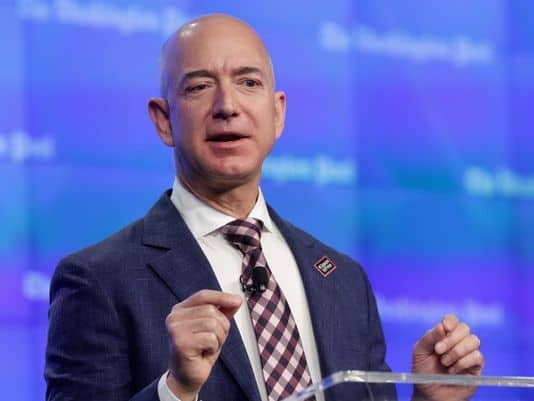
DAVOS, Switzerland — Confidence levels at some of America’s largest corporations soared over the past year despite uncertainty created by President Trump’s election and the fractious geopolitical headlines his administration unleashed, according to a report published Monday on the eve of the World Economic Forum’s annual meeting.
Professional services giant PwC’s annual CEO survey found U.S. business leaders’ optimism about global growth prospects and the worldwide economic environment for the next 12 months more than doubled to 59%. This time last year, it was 24%.
After presidential election-related anxieties in 2017, U.S. CEOs’ confidence in their companies’ short-term revenue growth also saw a healthy increase — to 52% for 2018, up from 39%.
The World Economic Forum runs from Tuesday to Friday here. PwC’s report attributes the boosted confidence to a U.S. economy that is growing at a respectful rate of 3%, increased consumer confidence and jobless rates that have hit new lows.
The survey also underlines how U.S. corporate leaders have been willing to look past the political tumult of Trump’s first year in office, including assaults on international trade agreements, controversies over immigration, withdrawal from the Paris climate accord and still-simmering allegations of election collusion with Russia.
“CEOs have become more resilient in terms of geopolitical noise and internal political stuff and figured out ways to stay truly focused,” Robert Moritz, PwC’s global chairman, said in a USA TODAY interview. “They are all about better execution of what they can control.”
Among the things that CEOs can control: Strategies for growth that rely on organic business expansion, cost reduction, strategic alliances and mergers-and-acquisitions. More than half of CEOs in the survey expect their employee headcount to increase over the coming year.
Moritz noted that the survey, the result of interviews with almost 1,300 CEOs in 85 countries, concluded before Trump’s pro-business administration enacted a U.S. corporate tax cut — to 21% from 35% — and rolled back regulation that has helped accelerate one of the longest stock market booms in history.
During Trump’s first year in office, the Dow Jones industrial average stock index leaped 31%, more than any other president since President Obama’s first term, following the financial crisis.
More broadly, the survey found that 57% of global business leaders believe economic growth will improve over the course of 2018. The finding is twice the level of last year’s survey, when 29% felt economic growth would rise. The global figure marks the largest year-on-year increase since PwC began asking CEOs for their views about global growth in 2012.
The International Monetary Fund on Monday updated its global growth forecast for 2018 to 3.9%..
Brazil also saw a large increase in the share of CEOs who are optimistic global growth will improve, up to 80% for 2018 from 38% last year. Even among the less optimistic countries, such as Japan (2018: 38% vs. 2017: 11%) and the United Kingdom (2018: 36% vs. 2017: 17%), optimism in global growth more than doubled year over year.
The CEOs voted the U.S. the top market for growth in the next 12 months, followed by China, Germany and the United Kingdom.
India bumped Japan to become the fifth-most attractive market in 2018, according to the report, PwC’s 21st.
Still, with the exception of the U.S., the optimism of CEOs is tempered when it comes to confidence in their own organizations’ near-term revenue prospects. In all, 42% of CEOs said they are “very confident” in their own organization’s growth prospects over the next 12 months, up from 38% last year.
Compared with previous PwC surveys, concern also rose on a much broader range of business, social and economic threats. “Extreme concern” about terrorism doubled to 41% for 2018 and also entered the top 10 threats to growth for the first time.
Cyberthreats, the availability of key skills and political populism also outpaced more familiar concerns over business growth prospects such as exchange-rate volatility and changing consumer behavior. However, the threat of over-regulation remains the top concern for CEOs globally, with 42% still “extremely concerned.”
Separately, a survey from consulting giant Deloitte Global similarly confirms that mixed bag of optimism and concern. The survey of 1,600 top executives in 19 countries asked how prepared their businesses are to adapt to the advent of artificial intelligence and other technology advances.
While 87% of the executives in the Deloitte survey expect those changes to ultimately give more people more access to education, jobs and social mobility, only a third of the executives feel highly confident that they can shepherd their organization through the changes.
Confidence is highest in North America, where 48% of executives say they can weather the changes, and lowest in Asia-Pacific, where 8% do, the Deloitte Global survey found.
“There is optimism, nearly bordering on excitement,” Deloitte Global CEO Punit Renjen said.
But there’s a dichotomy between that optimism and their feelings of preparedness, he added. “Whenever there is potential massive change, there’s always that trepidation,” Renjen said.
